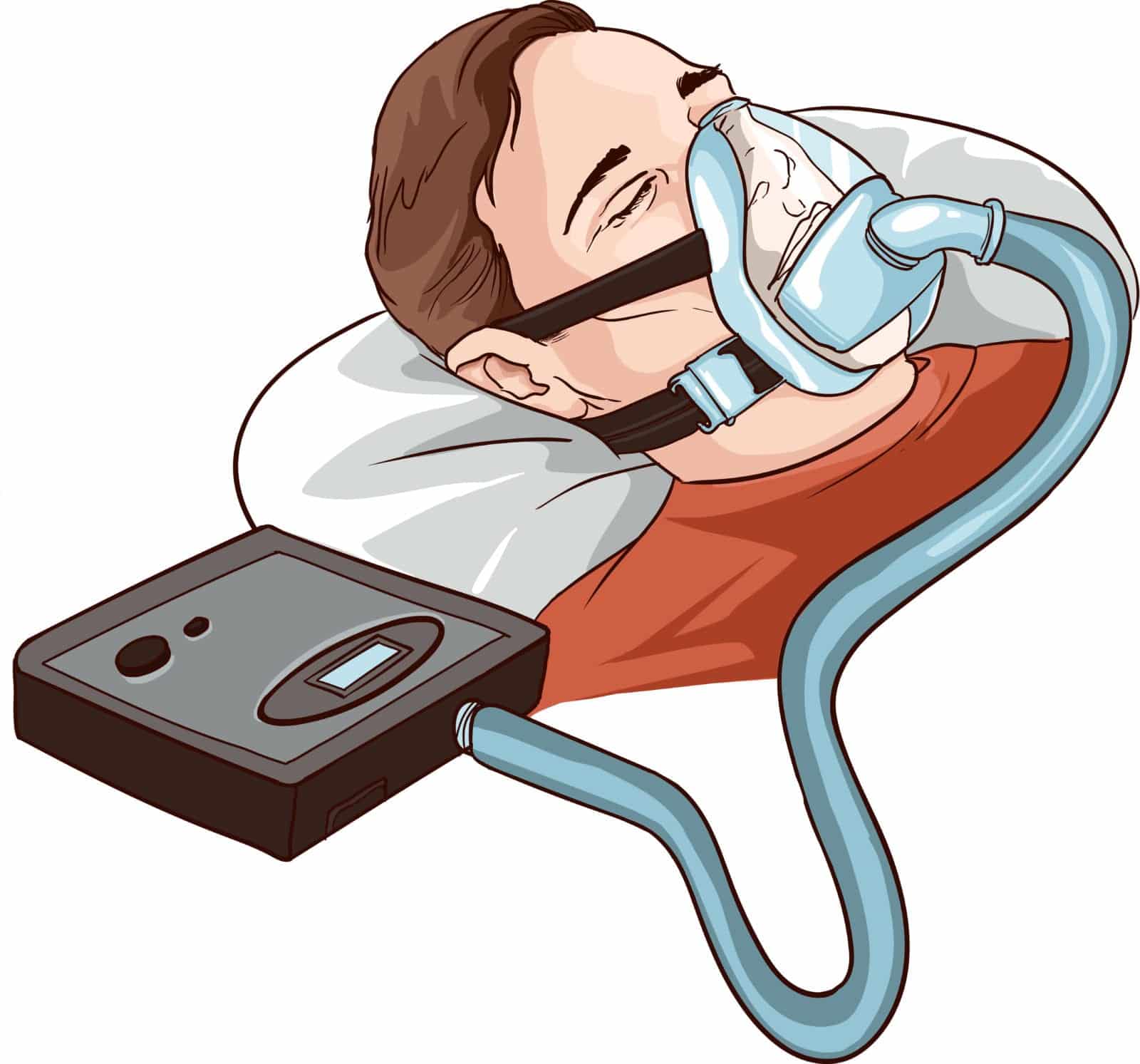Call to speak to a Licensed Insurance Agent
Mon - Fri 8am – 8pm EST; Sat - Sun 10am - 6pm EST

CPAP machines are commonly used to treat sleep apnea. A common question people ask about them is “does Medicare cover CPAP machines?”
Below we look at this question as well as provide some additional helpful information about sleep apnea and CPAP therapy.
But let’s answer the main question first.
The short answer is yes. However, as it typically the case, there’s a bit more to it than that.
Medicare will pay for CPAP therapy if it is to treat obstructive sleep apnea. If you are diagnosed with obstructive sleep apnea, usually you will get Medicare coverage for a 3-month trial of CPAP therapy. If your doctor says that the therapy helps treat your disorder, then Medicare may extend the range for CPAP.
CPAP machines are considered to be DME (Durable Medical Equipment), which Medicare Part B covers. If you are enrolled in Original Medicare, you will only pay for 20% of the cost. But you will only get coverage if you get the machine from a supplier that accepts Medicare.
Medicare may also cover other treatments for sleep apnea. For example, Medicare Part B may also cover certain sleep tests if you are experiencing symptoms of sleep apnea.
Also, If you are enrolled in a Medicare Advantage Plan, you could get coverage for medically approved hypoglossal nerve stimulation for sleep apnea.
If you are enrolled in Medicare Part D, the insurance may offer to cover doctor-prescribed nasal decongestants. But before doing so, you need to check the list of drugs, called a formulary, which your plan includes.
Without insurance coverage, CPAP machines can cost between $500 to $3000.
Sleep Apnea is a severe sleep disorder wherein a sleeping person may repeatedly stop and start breathing. You may be suffering from sleep apnea if you snore loudly in your sleep, and feel tired even after having a full night’s sleep.
The sleep disorder affects millions of people worldwide, but only 4% of males and 2% of females are diagnosed. Some people do not notice they have occasional lapses in breath while they sleep. The most common signs and symptoms of sleep apnea are the following:
There are three main types of sleep apnea, which are:
According to the National Heart, Lung, and Blood Institute (NHLBI), obstructive sleep apnea are caused by issues including:
Once diagnosed with severe sleep apnea, your doctor may prescribe a continuous positive airway pressure (CPAP) machine. CPAP machines are used for treating obstructive sleep apnea disorders.
The medical equipment allows you to have normal breathing. It sends a steady flow of oxygen into both your nose and mouth while you are sleeping, keeping your airways open.
The CPAP equipment consists of the machine itself, tubing, and the mask that the person must wear as he/she sleeps. There are different types of masks: a mask that fits the nose, a mask covering both the nose and mouth, and nasal pillows that fit in the user’s nostrils.
CPAP machines may also include humidifier attachment, which can ease discomfort in a person’s nose or throat.
Note: Medicare coverage changes all the time. And your specific coverage may impact what gets covered and what doesn’t. Always be sure to double check with your health care provider and/or Medicare insurance provider about what is and isn’t covered by your plan.
This article is part of our series on “What does Medicare cover?”
Also, you can check out other articles in this series including: Does Medicare cover walk-in tubs?